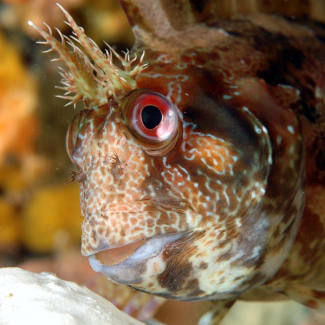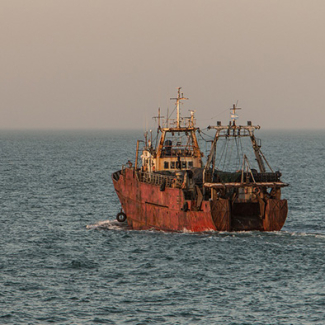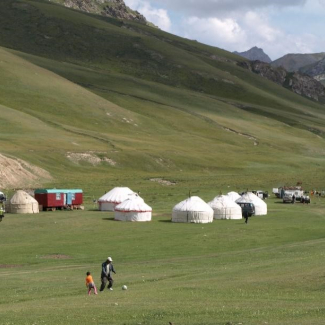
On track for the creation of the IPOS, the new International Panel for Ocean Sustainability
The CNRS invited scientific institutions from numerous countries at Maison Irène et Frédéric Joliot-Curie in Brussels to discuss the International Panel for Ocean Sustainability (IPOS). Participating institutions confirmed their support for creating the IPOS by signing the “Brussels Declaration,” which promotes scientific coalition, as well as a new practice and framework for ensuring ocean sustainability based on collaboration between the various stakeholders (knowledge holders, decision makers, etc.). The conference also meant to raise awareness of the project among European and French stakeholders and representatives from civil society.
For Alain Schuhl, Chief Scientific Officer of the CNRS: “Today it is urgent to organize the global scientific community in support of sustainable oceans. The CNRS assumed its responsibility by organizing this workshop, which was a genuine success. Together we established the functioning and the role of the scientific coalition within the IPOS. We are very proud of this effort. We will now actively participate in the coalition to make sure it issues recommendations at the United Nations Ocean Conference, to be held in Nice in June 2025.”
This workshop, which took place on 18-19 April in Brussels, is a major step up for the IPOS, seen as a transdisciplinary interface promoting the circulation of knowledge between science, society, and policymakers with the aim to bring about lasting and transformative changes for the future of oceans. The goal of the IPOS is to bring together the various actors involved in ocean sustainability across various domains and actions.
Françoise Gaill, Scientific Advisor at CNRS and Vice President of the Ocean & Climate Platform, which is behind this proposal, was very pleased with this important step in building the IPOS: “This meeting in Brussels is the start of a great adventure for oceans and the role that knowledge plays in their fate, especially in connection with the United Nations Sustainable Development Strategy, and the United Nations Decade of Ocean Sciences in the Service of Sustainable Development (2021-2030). I welcome the support of the European Commission and the positive reception the coalition has enjoyed among scientific institutions, along with their commitment to concretely establish processes of co-construction and the new knowledge needed to anticipate the future uses of oceans.”
For Joachim Claudet, CNRS Ocean Advisor: “It is time to accept that we must change paradigm in order to lead our societies toward sustainability. Science offers methods and approaches for pursuing this path.”


A brief history of the IPOS: The IPOS project is led by two figures, Dr Françoise Gaill and Dr? Tanya Brodie Rudolph, a lawyer specializing in environmental law and ocean governance (South Africa). It focuses on key notions relating to oceans, such as a common good of humanity, sustainability, and transdisciplinarity. The project grew out of many workshops and discussions in recent years bringing together experts, scientists, civil society, and other stakeholders. In 2022, the IPOS received substantial support from the scientific community during COP27, as well as from European authorities. An article published in Nature Partner Journals - Ocean sustainability in December 2022, signed by 35 authors, presented the project, and affirmed the need for such a panel within international ocean governance.
Next steps: The coming months will be particularly active and decisive for the IPOS, ahead of its official launch during the United Nations Ocean Conference, to be held in Nice in 2025. Efforts will focus on identifying and attracting new stakeholders in an effort to establish preferred partnerships. The positioning of the IPOS within international ocean governance and its relations with UN bodies are a priority in the IPOS agenda for the coming months. An event devoted to the IPOS is foreseen during the next assembly of the UNESCO Intergovernmental Oceanographic Commission (IOC) in June 2023.
List of the first signatories:
- Centre national de la recherche scientifique (CNRS)
- Universitàt Autonoma de Barcelona (UAB)
- Muséum national d’histoire naturelle (MNHN)
- Instituto OKEANOS – Universidad dos Açores
- European Academy of Sciences (EurASc)
- Centre scientifique de Monaco (CSM)
- FAPESP, The São Paulo Research Foundation
- Instituto Oceanográfico - Universidad de São Paulo – Unesco Chair for Ocean Sustainability (USP)
- Mercator Ocean International
- MARE - Centro de Ciências do Mar e do Ambiente
- Institut de l’Océan – Alliance Sorbonne Université
- GEOMAR Helmholtz Centre for Ocean Research Kiel
- The Alfred Wegener Institute - Helmholtz centre for polar and marine research (AWI)
- Université de Bretagne Occidentale (UBO)
- Ifremer
- Woods Hole Oceanographic Institution (WHOI)

